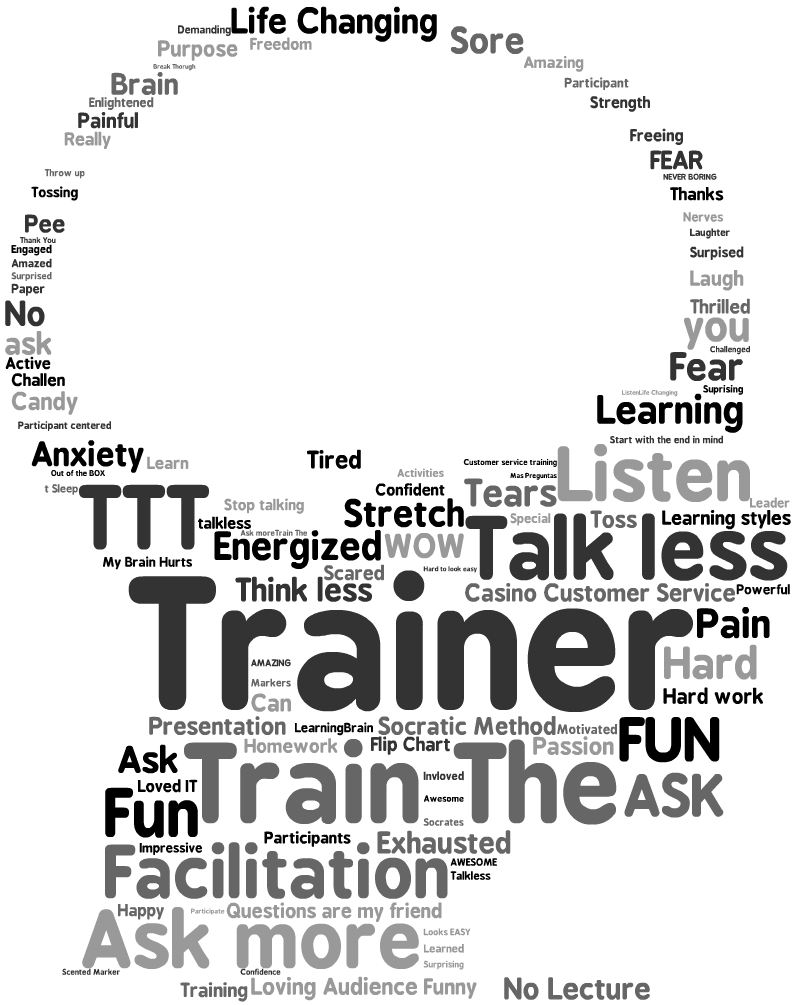Characteristics of Trainers
Aspiring trainers are often concerned with what it takes to be successful in their profession. Their thoughts often revolve around the identification of the characteristics of good trainers. Knowing those characteristics would allow for a thorough self-assessment and for taking the steps needed to reverse any deficiency.
To determine the top characteristics of trainers, we at Meirc have conducted our own research. We began by compiling a list of the 20 most recognized characteristics of trainers as indicated by researchers and professional trainers. We then asked participants to our training courses, through an online survey, to rank order these characteristics form most important to least important. The results are out and here are the top 10:
- Well prepared
- Subject matter expert
- Engaging
- Respectful
- Organized
- Positive sense of humor
- Competent
- Inspiring
- Enthusiastic
- Energetic
Let me share with you my “two cents” on how a trainer can project the above characteristics while conducting training sessions.
Well prepared
Preparation has two aspects, individual preparation and venue preparation. Being individually prepared requires a session plan to be developed in advance. This blueprint of the training session outlines the topics to cover, learning methods, materials required, timings for each topic and examples or stories to share. Video-recording rehearsals of the session using the blueprint would allow the trainer to review and fine tune the delivery. Venue preparation includes all logistical arrangements concerning participants from seating plans to coffee breaks, room temperature and lighting.
Subject matter expert
A subject matter expert is an authority on the concerned topic; a person with cutting-edge knowledge and skills. A trainer builds expertise through experience, research and participation in conferences and workshops. Research can be done using online sources, books, magazines and journals.
Engaging
To engage is to maintain the attention and efforts of participants. Be a facilitator and not a lecturer. Replace your long lectures with shorter lecturettes (mini lectures) and introduce more hands-on activities. A lecture should not exceed 20 minutes in duration.
Respectful
Show respect to your participants by being courteous and polite. Greet them warmly at the beginning of your course and at the start of every day. Listen to their needs and make the extra effort to satisfy such needs. Be aware of cultural differences and improve your cultural awareness as you train diverse participants.
Organized
Every little detail is noticed by your participants, from the organization of your desk (clutter or clean) and the set-up of your training room to your physical appearance (formal or casual) and the sequence of your activities. Develop your training blueprint and follow-it.
Positive sense of humor
Displaying a positive sense of humor is the art of being verbally funny. Have you ever thought of comparing the structure of a presentation to a burger? Surely such sound bites grab attention and if done well will sustain the interest of your participants. This, however, is a two-edged sword: If you do not possess a positive sense of humor then it is better to stick to using practical examples and analogies.
Competent
A competent trainer is a qualified trainer. Strive to obtain a renowned certification from a recognized organization. For trainers the Association for Talent Development (ATD) offers the Certified Professional in Learning and Performance (CPLP). In addition the Canadian Society of Training and Development (CSTD) offers the Certified Training Practitioner (CTP).
Inspiring
To be inspiring is to affect and influence participants’ thoughts and feelings towards improved performance. To do that, constantly link training content to practical on-the-job applications and instigate an action plan to transfer knowledge back to the workplace.
Enthusiastic
Show lively interest in the occupation of a trainer. It is a noble profession, one of sharing knowledge that can productively be used to improve performance. Adopt this mindset on every training session you facilitate. To prevent the routine from setting in, never present the same information in the same way; vary your methods and techniques.
Energetic
A trainer’s energy is contagious; it positively affects the energy of participants. Structured movement, variation in tone of voice and dynamic activities are all contributors to an increased energy level.
The above characteristics and corresponding recommendations may be used as a standard for self-assessment and a subsequent development plan.
Written By: Jimmy S. Haddad, Senior Consultant
Related Blogs

An Organized Approach to Attaining Career Goals: The WHAT-HOW-WHEN Method
Introduction: As a management consultant, I've witnessed the transformative impact of setting well-defined and actionable goals for one's career. This blog introduces you to the WHAT-HOW-WHEN method, a st...

Mastering Social Skills in the Workplace: Unlocking Success in the Modern Work Environment
In today's rapidly changing and interconnected world, having strong social skills is essential for professionals who want to succeed in their careers. As work, learning, and life continue to evolve, it's impor...

Moral Hazard: Why Actions Have Consequences
“There's a big difference between small companies failing and big companies failing. When small companies fail, it’s their problem. When big companies fail, it's everyone's problem”. Truer words have never bee...

Why do leaders need to invest in employees Psychological Capital?
I am pretty sure you have heard or know something about human resources, or shall I say human capital as it is the trendy term now. Also, I am aware that you all associate human resources with the management of people ...
